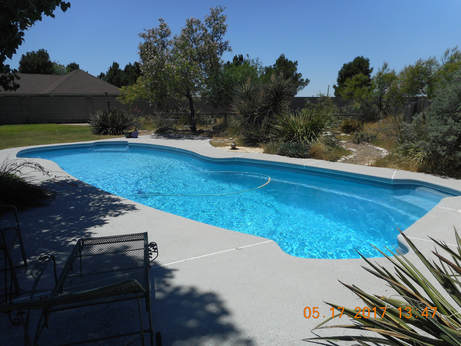 I inspect pools on a regular basis as part of a home inspection. Here are some great points to keep in mind regarding owning or installing a swimming pool. If you're planning to install a pool, be prepared to spend a pretty penny. On average, in-ground pool installations average $40,000. A word to the wise: Don't expect to add the pool value to your asking price when you sell your home someday. The truth is, many buyers may consider a home with a pool more of a burden than a blessing. If you decide to begin with a pool installation, carefully consider pool placement in your yard. Consider daylight and how it will impact water temps, view from the home from a safety standpoint, etc. An experienced pool installer should be able to help you avoid making a mistake with pool placement. I also recommend getting to know safety guidelines and requirements for pool installation. The short version amounts to you being responsible for whatever happens, so bear that in mind when planning your pool. Safety should be your #1 priority in considering buying or installing a swimming pool. Of course, before you buy a home with a pool, get the pool inspected. Please remember that the pool should be operating as if it will be used for swimming at any time in order for a proper inspection to take place. Many times, some or all equipment has been shut down by the homeowner to save money or hide defective equipment. I do not turn on equipment or operate valves/components of the pool due to liability. Most experienced pool inspectors nationwide stick to these guidelines as well. It may help to find out if the previous homeowner had a pool company servicing the pool so you can find out if it's been serviced regularly and what that company charges. Keep in mind that maintenance is never cheap, and can become a burden if you are attempting to DIY. Many pool maintenance companies charge a few hundred dollars for the company to open the pool at the beginning of the summer (including removing the cover, cleaning out debris and getting the motor running again), and close it at the end of the season, while others also charge for weekly or biweekly cleanings. When homeowners don't pay for regular cleanings or clean it themselves, that can trigger costlier maintenance calls. The cost of replacing motors, heaters, pumps and covers (which can get moldy if they're rolled up while wet) varies depending on the size and model used. Adding chemicals to balance the pool's pH level is another cost. Pools that are unused or partially filled in the heat of the summer are always a red flag. If the home you're considering has a pool that is not operating or partially filled, assume the wor$t! Don’t forget about insurance costs. Insurance companies usually try to avoid insuring homes with swimming pools. Contact your insurance company or agent to make sure you can get coverage, and find out what it will cost you, since a pool increases the homeowner's liability risk. Pools are meant to be fun, so getting a handle on the expected costs can help avoid costly surprises in the future. If you're planning to purchase a home with an in ground swimming pool, feel free to contact me! I can take care of your home inspection and pool inspection. #pool #swimming #realestate #lubbock #odessa #midland #texas #inspector #realtor
0 Comments
Your comment will be posted after it is approved.
Leave a Reply. |
AuthorCale Cameron Archives
May 2024
Categories |
Proudly powered by Weebly

 RSS Feed
RSS Feed